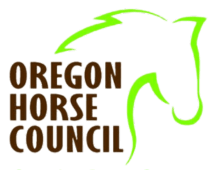Choke is a life-threatening condition in horses that occurs when food or a foreign object blocks the esophagus, the tube that carries food from the mouth to the stomach. Unlike human choking, which is caused by a blockage in the trachea (windpipe), equine choke does not block the windpipe and horses can still breathe.
Signs of choke include:
• Discharge from nostrils
• A green, frothy discharge that may contain food material, saliva, or be white or food-colored
• The horse may hold its head outstretched, stretch its neck down, or have a large bulge at the base of its neck
Other behaviors
• The horse may cough, gag, lick, chew, shake its head, appear anxious, or have difficulty swallowing
Appetite
• The horse may be disinterested in food and water, or may act colicky
Some common causes of choke include:
• Eating dry or coarse food too quickly
• Eating unsoaked sugar beet pulp, pieces of carrot or apple, or pelleted feed
• Ingesting a foreign object
• Dental issues
• Neurological conditions that prevent the esophagus from swallowing normally
If your horse is choking, you can try these steps while you wait for a veterinarian:
• Put the horse in an enclosure with non-edible bedding, no water, and no hay
• Keep the horse calm and its head low to allow saliva to drain
• Gently massage the left side of the horse’s neck over the jugular groove to try to break up the obstruction
• Do not attempt to pass anything down the horse’s throat. The veterinarian may try to flush out the obstruction with a feeding tube, or may give the horse sedatives, painkillers, and anti-inflammatories. In many cases, choke clears up in under 30 minutes, but the prognosis depends on how quickly treatment occurs and how long it takes to resolve the choke.


Andria lives in Central Point, Oregon with her husband, Dr. Keaton Massie. Together they own and operate Massie Equine Veterinary Clinic and Healing Center, a full service equine wellness, sports medicine, rehabilitation and podiatry practice. Andria specializes in equine physiotherapy and designs all of the rehabilitation, regenerative medicine and fitness programs for their patients.

